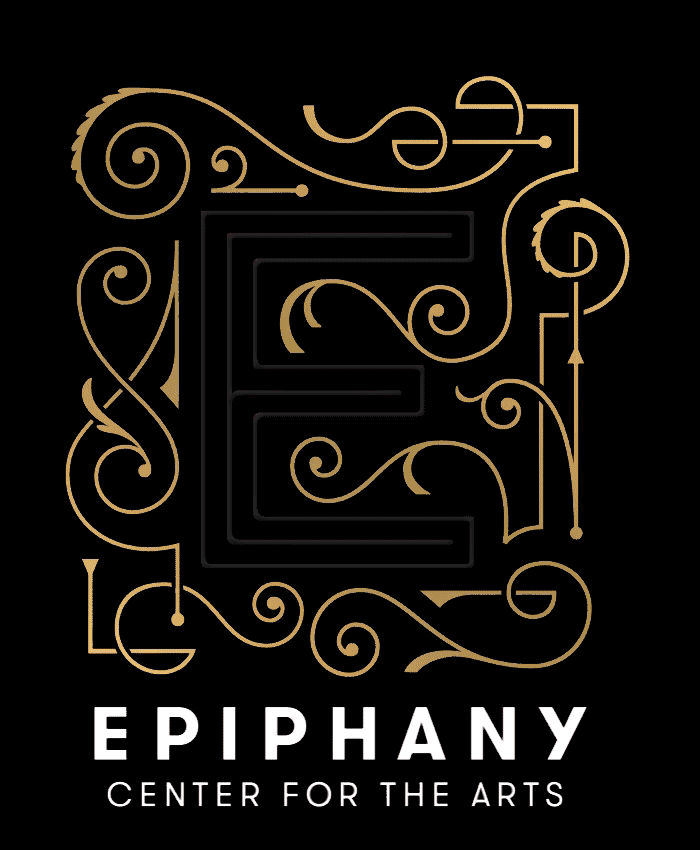Parker’s “City Beautiful” set and Ted Moore’s dreamscape highlight Ear Taxi marathon at Epiphany
 The Epiphany Center for the Arts in the West Loop hosted the penultimate day of the 2021 Ear Taxi Festival on Sunday. The city-wide new music smorgasbord, presented by New Music Chicago and curated by Michael Lewanski, showed no signs of slowing down as it approached its final day, with a marathon concert beginning at 11 a.m. and stretching into the evening.
The Epiphany Center for the Arts in the West Loop hosted the penultimate day of the 2021 Ear Taxi Festival on Sunday. The city-wide new music smorgasbord, presented by New Music Chicago and curated by Michael Lewanski, showed no signs of slowing down as it approached its final day, with a marathon concert beginning at 11 a.m. and stretching into the evening.
Epiphany’s beautifully renovated 1885 church building was an ideal venue for Sunday’s smaller-scale performances, leaving one hoping for more frequent classical and contemporary offerings at the site.
I was able to attend the first four 45-minute sets of the day. Pianist Marianne Parker, mezzo-soprano Megan Ihnen, and violist Michael Hall kicked things off with a set dubbed “City Beautiful,” which comprised five works inspired to various degrees by architecture. Parker opened with two offerings for piano and electronics, the world premiere of Pierce Gradone’s Power Ballade and the local premiere of a new arrangement of Steven Snowden’s Twenty-five Million Candles (originally for piano, marimba, and electronics). Parker gave stellar advocacy to these finely crafted works, with Gradone on hand to share the appreciative applause.
The local premiere of Dennis Tobenski’s Good Bones followed, with Ihnen joining Parker for this brief setting of Maggie Smith’s poem of the same name. Smith’s lines are about protecting her children from her own cynicism and the evils of the world, and Ihnen sang these with poise and dusky urgency, deftly accompanied by Parker.
Hall and Parker then offered the world premiere of the first movement of a new work by Francine Trester, The Daniel Burnham Suite, on works by the storied urban designer. The movement is based on the first part of a famous Burnham quotation—“Make no small plans…”—and while Hall and Parker made a simpatico pair, the connection between that inspiration and Trester’s driving, guttural textures was opaque.
“City Beautiful” closed with the world premiere of Landscapes by Regina Harris Baiocchi, also present Sunday. This work for mezzo, viola, and piano took Frederic Law Olmsted as its point of departure, and is cast in A-B-A form, the outer sections in a comely harmonic vein, surrounding a more dissonant martial inner section. While the viola writing did not come across as very idiomatic, Parker, Ihnen, and Hall captured the work’s open-air spirit, and Baiocchi made clear she appreciated their efforts.
Two pieces made up the day’s second set: Shawn E. Okpebholo’s Excursions for Trombone and Piano, and Daniel Pesca’s A Line for a Walk. Trombonist Daniel Quinn was joined by pianist Janna Williamson for the former. This pair did fine work together in Okpebholo’s triptych, Quinn playing with a burnished tone that was genuinely affecting in the closing movement “The Trav’ler,” based on the famous spiritual, with Williamson giving solid support. Pesca himself was at the piano for the world premiere of his own work, joined by violinist Hanna Hurwitz. A Line for a Walk has a strong narrative feel with numerous discernible episodes. While Hurwitz’s violin tone was not always inviting, she and Pesca ably charted the composer’s canvas and its many moods, with its weary, Baroque-inflected closing dance making an evocative impression.
The award for abject, unremitting bizarreness handily went to the next ensemble, the experimental music group a•pe•ri•od•ic. The “intersectional, member-run” troupe began with Benjamin Patterson’s Pond, for which a grid of blue painter’s tape was made on the floor. Members stood around this array, wound up toy frogs, and let them loose in the grid, while intoning isolated words—“bounce,” “don’t”—apparently depending on where the toys fell.
Trace3 by Carol Genetti—who joined a•pe•ri•od•ic on electronics for the performance—came next. A collage of unpitched noises from instruments (bassoon, horn, cello, piano), sibilant vocal aspirating, and electronic static created a general impression of shortwave radio distortions. This was followed by Emmanuelle Waeckerle’s O(hhh), based on The Story of O, a pastiche of isolated pitches on various instruments with fragmentary lines from the erotic literary work interspersed. a•pe•ri•od•ic’s grand finale was its president Nomi Epstein’s communications (3): language. The French horn player traded in his instrument for what looked like a mortar and pestle, and Genetti took up what appeared to be a white noise machine. The six members barked isolated syllables, occasionally singing pseudo-chords, for what felt like an eternity.
The final set I caught was also the most successful. The Dream Songs Project, a duo of mezzo Alyssa Anderson and guitarist Joseph Spoelstra joined composer Ted Moore on electronics for his expansive FEATHERMUCKER. The 50-minute score is a dystopian dreamscape of sorts, and according to the composer’s notes combines “folk, experimental, and electronic music; cinematic sound fx; and sound art installation.” Despite these myriad influences, the overall impression is a coherent, impressive one, conveying desiccation, desperation, but also glimmers of light. Anderson, Spoelstra and the composer gave an assertive and compelling performance of Moore’s thoughtful mini-drama, and one looks forward to more from this young talent.
The 2021 Ear Taxi Festival’s final day is Monday. eartaxifestival.com
The Epiphany Center for the Arts regularly hosts a variety of live music. epiphanychi.com
Posted in Performances


